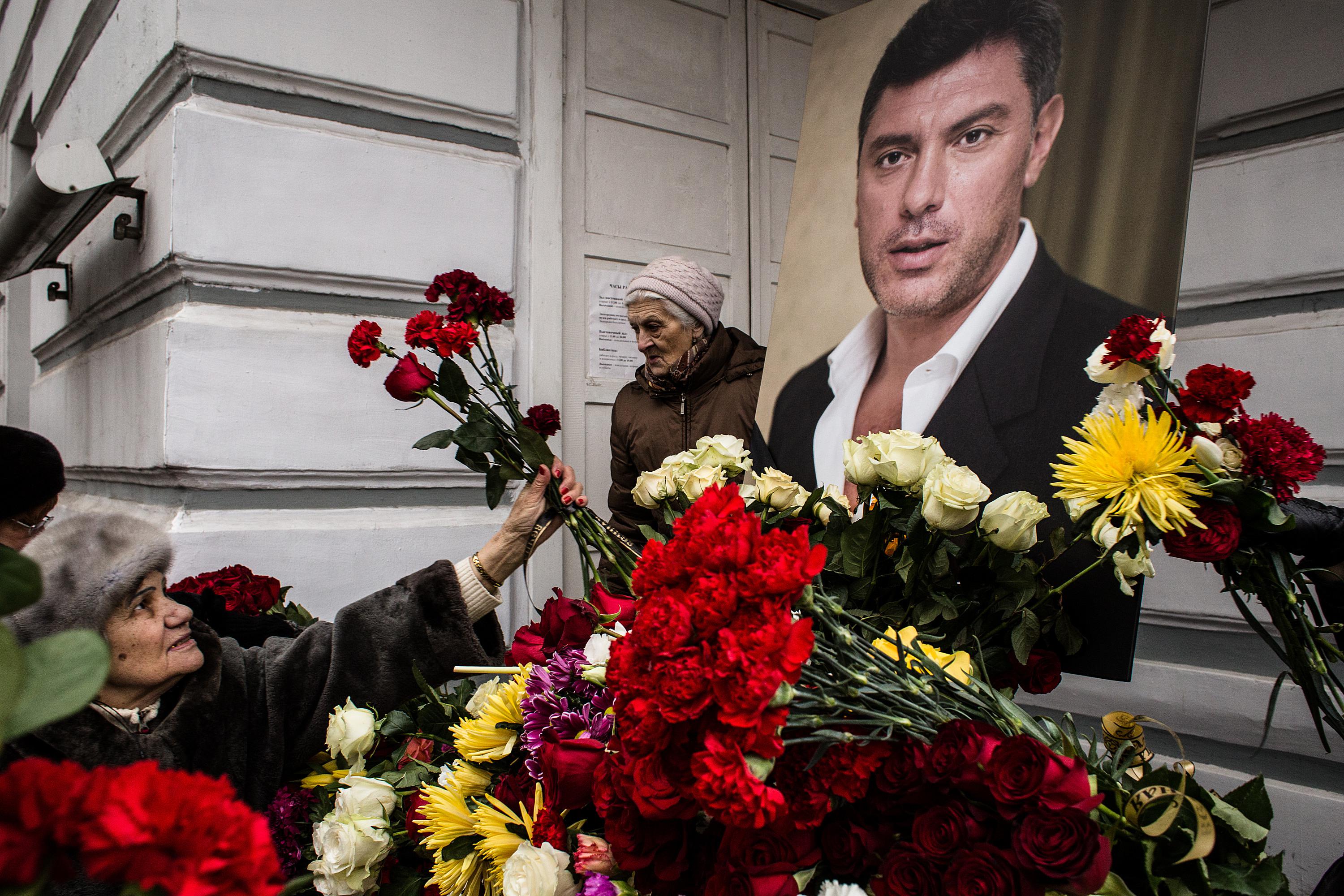Two suspects have been detained for the murder of Russian opposition leader Boris Nemtsov, the head of Russia’s domestic law enforcement agency said on Saturday. Alexander Bortnikov, the head of the Federal Security Service, known as FSB, said law enforcement officials had arrested Anzor Kubashev and Zaur Dadayev, who are reportedly residents of the Caucasus region, “a volatile region of southern Russia plagued by insurgency,” explains the Guardian. Charges are yet to be announced against the two men who are suspected of both organizing and carrying out the crime, according to Interfax. The men were apparently located through cellphone records and DNA testing of evidence.
The way in which the arrests were announced on state television by the head of the FSB shows how the Kremlin wants to be seen as taking the case very seriously, notes the BBC. Nemtsov was an outspoken critic of Russian President Vladimir Putin’s government, and the way he was gunned down—in downtown Moscow on Feb. 27 within view of the Kremlin—has led many to suspect the government’s involvement in his death. Even though some of Nemtsov’s friends and associates praised the progress in the investigation, they also raised concerns that “the accusations against suspects from the Caucasus region could indicate that authorities are pursuing their theory that the killing was motivated by enemies of Russia trying to destabilize the country,” reports the Los Angeles Times. Ilya Yashin, a Nemtsov ally, called on authorities to release as much evidence as possible that incriminates the suspects so any doubts can be laid to rest.
Authorities say they got a clear view of the suspects from cameras located on the bridge where Nemtsov was shot. But “there have been confused reports all week in Russia about whether the cameras were actually working and what they were able to capture,” points out the New York Times.
“The FSB now says that that they have ironclad evidence of these two men from North Caucasus directly involved in the attack and they could identify them without doubt using the footage from some other cameras which recorded their faces,” Yashin said. “It is very good but from now on the investigation should be as public as possible because the most important thing is to identify and apprehend those who ordered the crime.”
